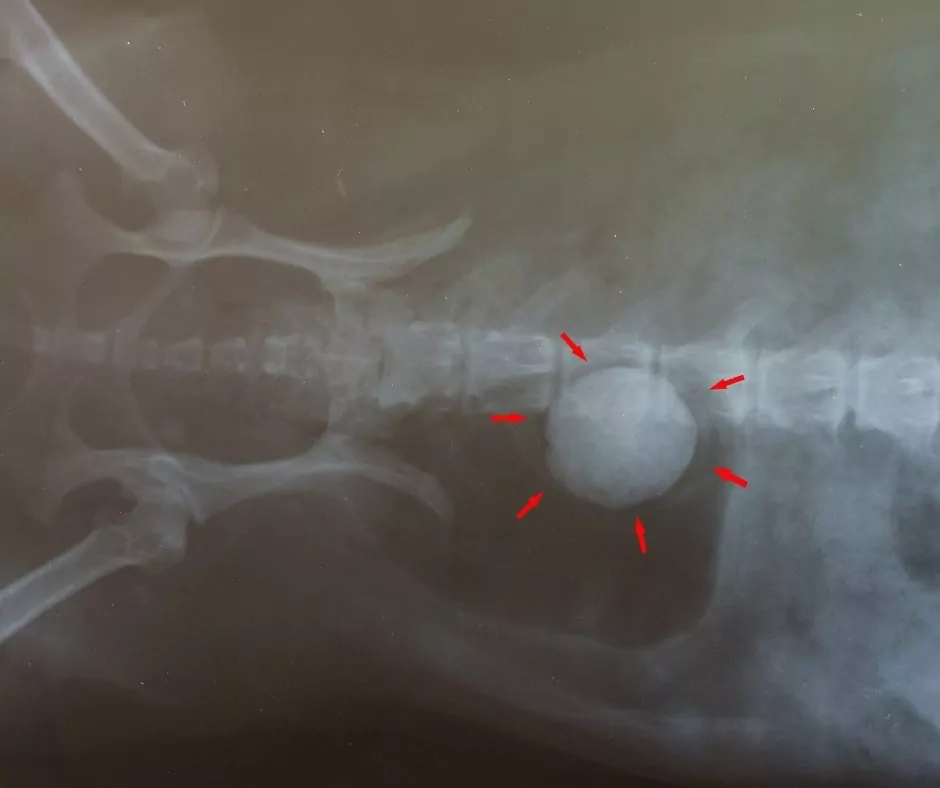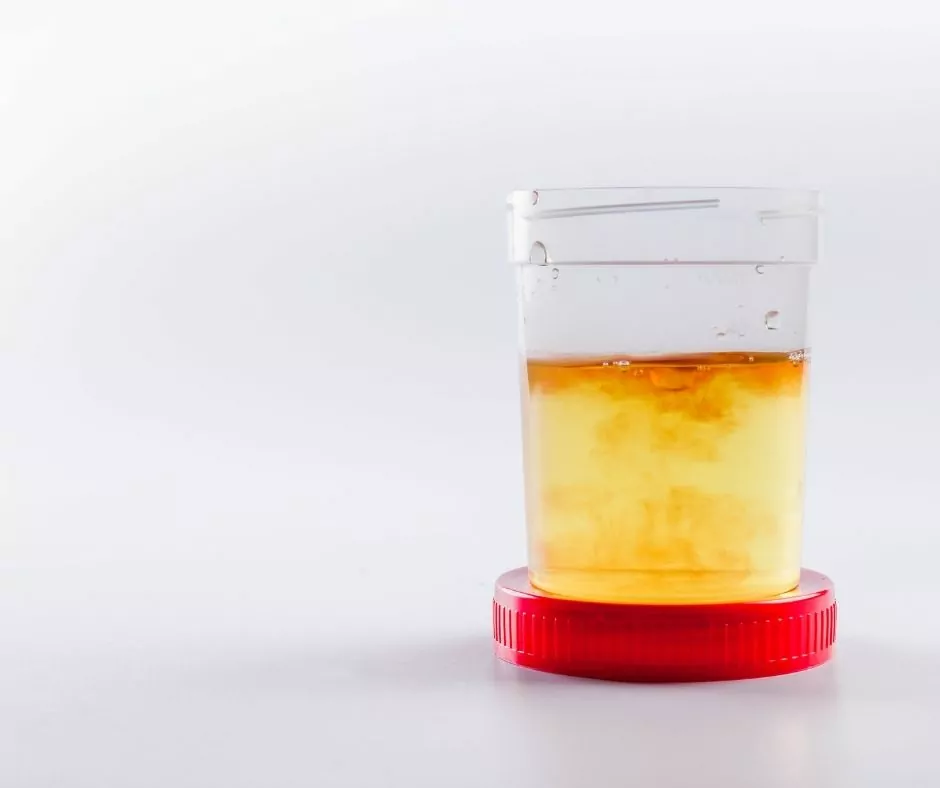What Are Urinary And Bladder Stones?
Urinary stones (or medically known as urolithiasis), or bladder stones in a dog are a very common condition when it comes to lower urinary tract diseases in domestic animals.

Bladder stones, on the other hand, medically known as calculi, are the result of precipitation and the formation of crystals due to a variety of minerals.
Urinary and bladder stones can be formed by several factors and these factors need to be eliminated in order to successfully treat these conditions.
What Can Contribute To The Formation Of Urinary And Bladder Stones?
- an abnormally high concentration of salt minerals in the urine
- retention of crystals and salts in the urinary tract for some period of time (urinary blockage)
- pH that favors salt crystallization
- a decrease in the body’s ability to inhibit crystal formation
- predisposition for urinary crystal formation
Symptoms Of Urinary/Bladder Stones
The symptoms of urinary/bladder stones can vary depending on the specific location where they occur or they form a blockage.
Most urinary stones are located in the urinary bladder or the urethra, and a very small percentage get lodged in the kidneys or the ureters.
Urinary stones can cause severe damage to the lining of the urethra and the bladder and cause serious inflammation. This inflammation can lead to a UTI (urinary tract infection) that can cause serious discomfort to the pet.
Some of the symptoms of urinary or bladder stones are:
- bloody urine
- straining to urinate
- urinating more frequently but smaller amounts
- accidents in the house
- abdominal discomfort/pain

Sometimes urinary stones can make a formation that blocks the urethra and this is a serious condition that requires immediate veterinary care. The signs of a urethral blockage are very obvious: the inability to urinate entirely and dripping bloody drops.
Diagnosing Kidney Stones in a Dog
Diagnosis of urinary and bladder stones is most often done with an ultrasound and an x-ray. If your dog starts behaving strangely, or you notice blood in his urine or vomit (or maybe a little of both), you should probably take him to the vet. This is because your pup might have kidney stones.
Kidney stones are small pieces of minerals that build up in the kidneys and can cause a lot of pain for your dog down there. The most common symptom of kidney stones is blood in your dog’s urine or in the vomit.
You should also be concerned about your dog because he might suddenly become very lethargic, especially if he stops eating. If this happens, have your vet check him out right away. Kidney stones can also cause lethargy because they can cause inflammation in the kidneys, but it is not likely that he will stop eating.
Kidney stones are not a completely uncommon occurrence and they are even more prevalent in older dogs than younger dogs. This is because most kidney stones are formed in dogs over the age of five or six years old. However, it can happen to any dog at any age.
There are a few things that can cause kidney stones in dogs. A common cause for kidney stones is hyperplasia (an extension to the normal-sized kidneys) which is most commonly caused by medications. Diabetic dogs also often suffer from kidney stones as well as other chronic diseases such as arthritis and immune-mediated diseases such as diabetes mellitus and Addison’s disease.
Treatment Of Urinary And Bladder Stones
Depending on the type of urinary stones, they can be either treated with surgery or by a modified diet.
Silicate stones, urates, calcium oxalate stones, and cystine stones cannot be dissolved and require surgical treatment.
Sometimes, struvite stones respond well to a commercially prepared diet and they get dissolved. This diet is not recommended for long-term use, only until the stones are dissolved.
In the video below, you can watch a surgical procedure for removing bladder stones in a dog.
Dr. Greg shows what bladder stones are, and what may cause them. Moister, higher protein food may help prevent phosphate stones and adding potassium citrate/ cranberry to a moister diet may prevent oxalate stones.
Check out our blog post “Important things to consider before performing vet surgery“.
